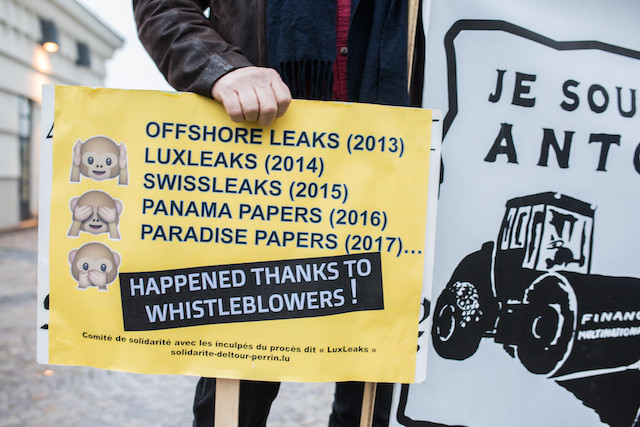Responding to a parliamentary question from Mars di Bartolomeo (LSAP), justice minister Sam Tanson (déi gréng) said the directive set out specific sectors it could be applied to, including public procurement, financial services, money laundering, product and transport safety, nuclear safety, public health, consumer and data protection.
“The government plans to widen the field of application of the directive to all national law,” she wrote in her response, published on 10 November.
The directive is expected to enter into effect 20 days after its publication in the official journal of the EU, scheduled for 15 November.
From this date, member states will have two years to implement it into their laws.
The new rules require the creation of safe channels for reporting both within an organisation and to public authorities information encountered in the context of their work, "wrongdoing that can harm the public interest, for instance by damaging the environment, public health and consumer safety and public finances.”
The directive requires member states to provide high levels of protection to whistleblowers against retaliation, and requires national authorities to inform citizens and train public officials in dealing with whistleblowing. The full scope of the directive can be found here.
Luxembourg’s most-recent whistleblowing case involved the so-called Lux Leaks disclosure of tax rulings offered by the government to over 300 multinational firms in Luxembourg. The information, which illustrated the extent of such schemes in Luxembourg, was disclosed by two staff members of PwC Luxembourg and published in November 2014 by the International Consortium of Investigative Journalists. Antoine Deltour, one of the whistleblowers, received a suspended jail sentence and monetary fine for his role. In 2018, Luxembourg’s Court of Appeal acquitted Deltour of all charges of copying and using PwC documents.
